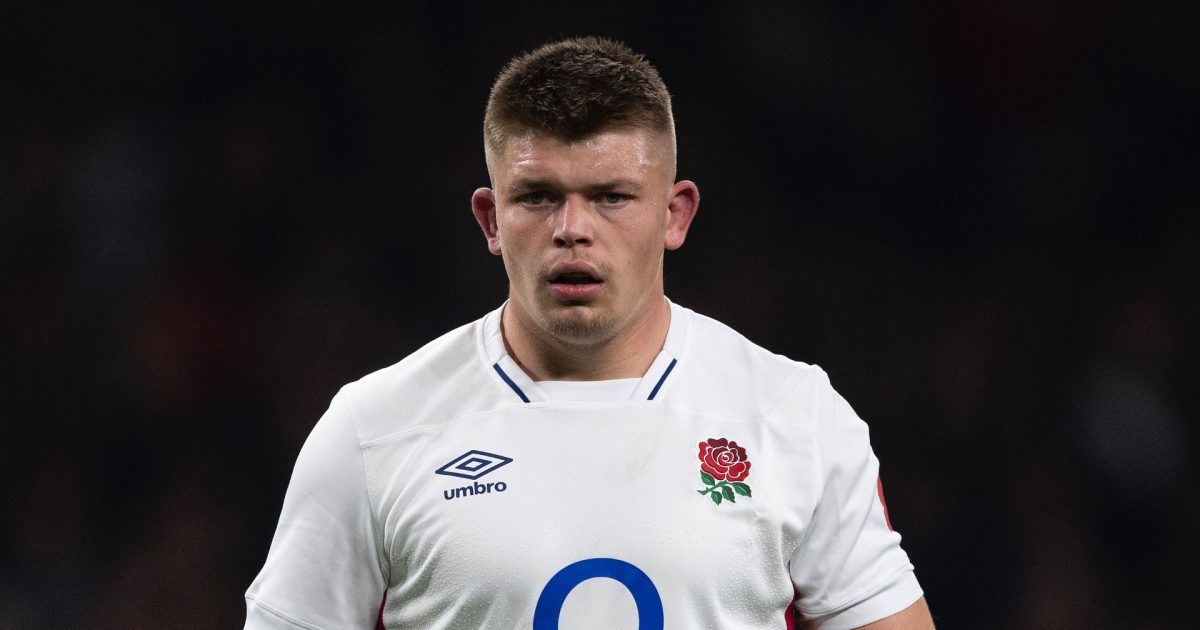'Fight club' has England optimistic about rookie front-rowers

Matt Proudfoot has got no anxiety about the likely youthful make-up of the starting England front row this Saturday against the Springboks. With Ellis Genge in isolation and Jamie George injured, Eddie Jones is set to start Bevan Rodd and Jamie Blamire in the No1 and No2 England jerseys in a match that will bring the curtain down on the Autumn Nations Series.
It’s a sharp drop off in the level of experience. Genge is a 26-year-old, 31-cap vice-captain loosehead while George is a 31-year-old, 60-cap hooker, but their places will now potentially be taken by Rodd, the 21-year-old who only made his Test debut last weekend versus the Wallabies, and Blamire, the 23-year-old with just four England caps.
Given what happened to the England scrum when they last played the Springboks, their set-piece getting demolished in the World Cup final two years ago in Yokohama, it is understandable if English fans are fretting in the countdown to this Saturday’s first rematch between the two countries.
Blamire, for instance, has made all six of his Newcastle appearances in this season’s Premiership from the bench, but he is now in line for a starting role. Have no fear, though, was the response from England scrum coach Proudfoot ahead of a match that will see the assistant come up against the country he helped to win the World Cup before he joined the Eddie Jones set-up.
“Like every front row forward it is about what is inside the man and that is what we look for firstly and that is what we identified in Jamie,” assured Proudfoot when asked to give reasons why England fans can believe in what Blamire is particularly capable of doing. “He is a very strong character, having a lot of personal fight.
There was an apprehension last week when the uncapped Bevan Rodd, 21, was flung in for a debut England start at the 11th hour… #England #ENGvRSA #AutumnNationsSeries #Springbokshttps://t.co/brGF2luJX8
— RugbyPass (@RugbyPass) November 16, 2021
“When he came into camp in the summer we chucked him into what we term ‘the fight club’. The front row does a lot of extra work and just the way he ripped in was really promising. It showed a lot of what is inside the man. We know that he has got a big future ahead of him and we have invested in him. Whenever the opportunity presents itself it’s how the person grabs that opportunity.
“You can go back in history and look at every great player, the first time they got the opportunity a narrative could be spoken about, ‘Is he ready, isn’t he ready?’ It is how he grabs it and Jamie will improve over the years, he will improve his technique, he will get better at everything he does.
“But for me, Saturday is about what is in that jersey, who is in that jersey, who is putting that white jersey on and I have got a lot of confidence in the ability of any of the front rows we are going to pick to put that white jersey on.”
Asked to elaborate on what fight club is in the England set-up, Proudfoot quipped: “It would be breaking the first rule, front rows don’t talk about fight club. No, it’s just where we do extra contact work, body position work. It’s just what the front rows do.
“It’s just a unique name to call the front row club. It’s just where the front rows do some extra work, technical work, binding work, physical work to improve them as players. We try to create every scenario to add to our players and make them better. That is just one of the things we do.
“We look for the ideal opportunities in the week to put it in. The name isn’t about fighting, it’s just a tag we use. It’s more to do with body composition and how we train the body. The way the week is planned out, week five of a campaign, you need to structure the work you do and you do it very carefully. We put it on early in the week normally and it is good for the guys.”
It was 2018 when new England star Freddie Steward was starring in the RugbyPass documentary series on Leicester's academy… the 20-year-old now explains why his career has accelerated so quickly #England #ENGvRSA #AutumnNationsSeries #Springboks https://t.co/pW1rfvc7zo
— RugbyPass (@RugbyPass) November 16, 2021


































